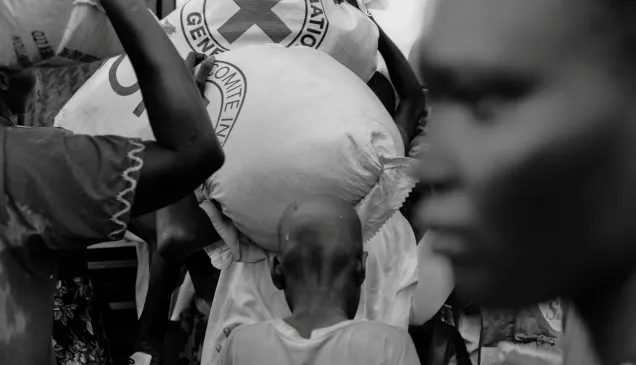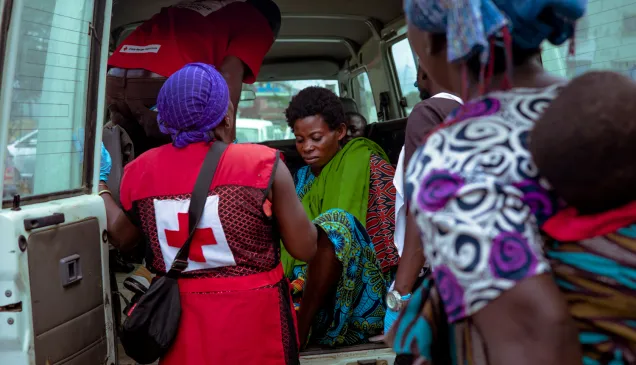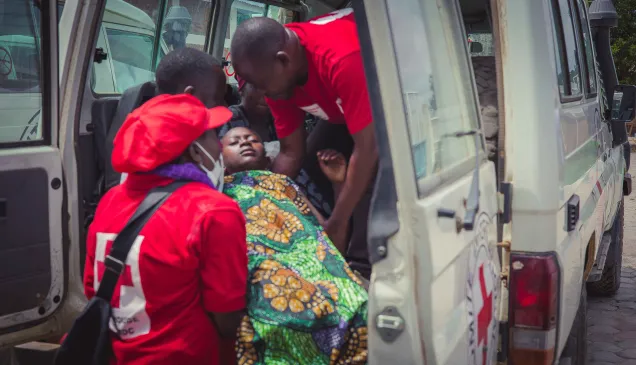Democratic Republic of Congo: Armed violence in Tanganyika depriving people of health care
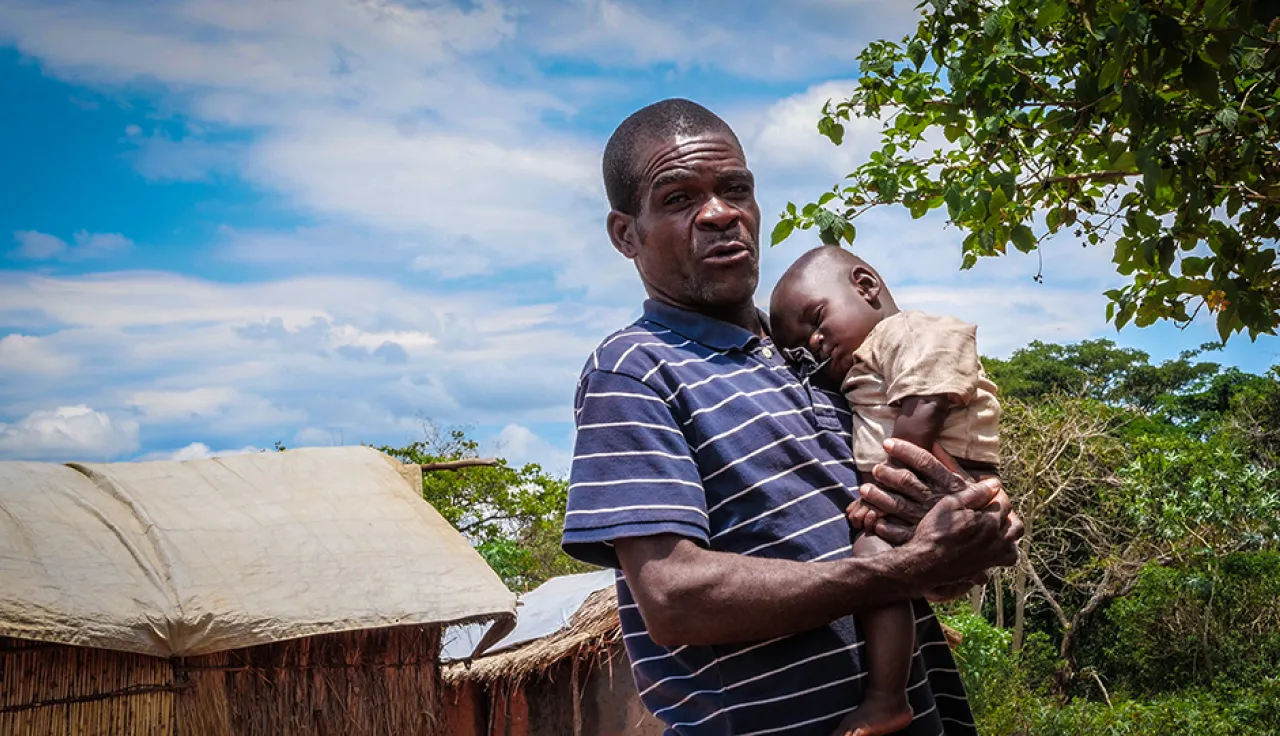
In the Democratic Republic of the Congo, in Tanganyika Province, the armed violence that has raged for the past three years has seriously compromised access to health care. People living north-west of the provincial capital of Kalemie must often face illness alone as medical facilities are attacked and looted.
Without health care, three of my children died from malnutrition and diarrhoea.
In 2017, communal violence and armed conflict broke out around Maurice Mwema's hometown of Kilasi, 80 kilometres from Kalemie. He and his family fled to the bush for shelter. They stayed for almost three years, unable to leave owing to the safety risks. "We got sick from the frequent rain and poor nutrition," says Maurice. "The children's hair turned yellow, and they turned to skin and bones."
“Three of my children died because they couldn't get medical treatment,” says Maurice Muema
This is his story pic.twitter.com/4AbYsJoaPO— ICRC Africa (@ICRC_Africa) March 29, 2021
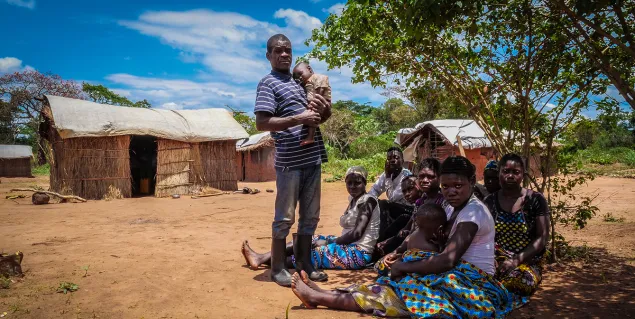
Homes, schools and health-care facilities destroyed by armed violence: Maurice Mwema and his family had a difficult return to their village after spending three years in the bush.
When the violence died down, the traditional leaders came together to urge displaced people to return home. On returning, people saw that the attacks had devastated not just their homes and schools but also health-care facilities.
"There was nothing left inside, no supplies, no staff, and the buildings had been wrecked," says Séraphin Kayite, the village head of Kilasi.
The consequences of these attacks on medical facilities have been tragic, particularly for young children. For more than two years, no children have been vaccinated. Families can only turn to traditional, often plant-based remedies. Trésor Kingombe, who oversees nutritional monitoring in the area, says, "We saw many deaths from measles and malaria epidemics, including infants between six and 11 months."
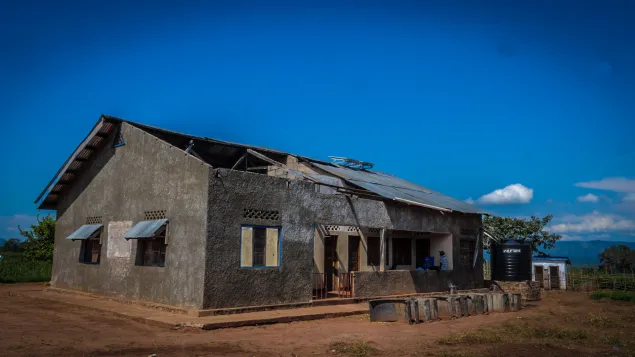
The health-care centre in Mulolwa was devastated by armed fighters, depriving thousands of much-needed medical care.
Providing health care against all odds
Health-care professionals, who also fled the violence, have started to return with everyone else. Many, aware of the disastrous state of health care in the area, have brought back medications and basic medical supplies. But getting the hospitals up and running again has not been easy.
"We were only providing outpatient care, no matter the case," says Benoît Mayenge, a nurse at the Mulolwa health-care centre.
The sick and injured went home immediately after receiving care because there were no beds or mattresses. Everything had been looted.
"There wasn't even a single chair for patients," says Jean Kabwe, a nurse in a health-care centre in Lukombe. As well, many rooms no longer had a roof and were exposed to howling wind and pelting rain.
And when medications ran low, the lack of available transportation made restocking an ordeal. "We didn't have bikes or motorcycles," " says Benoît. "To make the trip, I had to walk almost 20 kilometres and then take a motorcycle taxi for Kalemie. On the way back, I'd do the same, carrying the medications on my head."
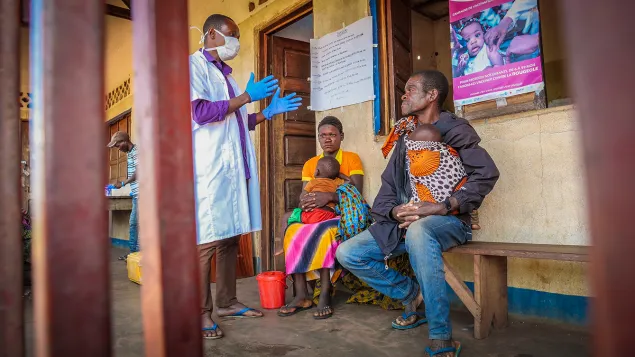
The Mulolwa health-care centre, north-west of Kalemie. Maurice Mwema and his family were among 15,000 people who benefited from free health care with the support of the ICRC.
Bringing communities lasting support
After evaluating the humanitarian situation in the area at the end of 2019, the International Committee of the Red Cross (ICRC) began to support three medical centres, serving more than 15,000 people in all, by providing basic equipment and medical supplies as well as essential medications.
"After a new evaluation, we went from giving ad hoc help to providing regular support," says Jules Lugoma, a member of the ICRC's health team. To improve access to medical care, all vulnerable people would receive free care, and a flat fee was put in place for everyone else.
Now, major illnesses such as malaria, diarrhoea, respiratory infections and malnutrition are being better addressed.
The ICRC also organized training for health-care personnel and promoted hygiene by improving the distribution of clean water, another challenge in the area. In addition, bicycles were made available to facilitate vaccination in remote villages far from medical facilities. "More than 800 children under 23 months, as well as 227 pregnant women, were vaccinated with our help," says Jules.
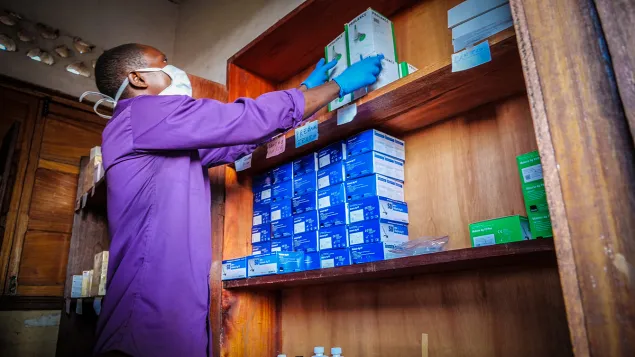
The ICRC regularly provides essential medications to the Mulolwa health-care centre.
After completing its work at the health-care centre in Lukombe in May 2020, the ICRC turned to the nearby facilities in Mulolwa and Lambo Katenga. Repair work at the centre in Mulolwa was finished at the beginning of January 2021.
Communal tensions persist in the area, and some armed groups are still active. Most of those who were displaced have come home, but their living conditions remain precarious.

